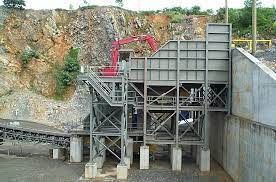Understanding Rock Crusher Types and Applications: Making an Important, Informed Choice

When it comes to industrial and construction activities, the role of heavy machinery is undeniable. Among the diverse range of equipment available, rock crushers stand out due to their substantial importance in material handling. However, when it comes to understanding how to choose a rock crusher, it is crucial to comprehend their types and applications first.
Rock crushers, as the name suggests, are powerful machines designed to crush large rocks into smaller, manageable fragments. These machines are significant in mining, construction, and many other heavy-duty industries. Several types of rock crushers are available, each with unique attributes and applications.
Firstly, jaw crushers are one of the most common types of rock crushers. They consist of two jaws, with the movable jaw exerting force against the fixed one, crushing the rock in between. Jaw crushers are perfect for primary crushing, as they can handle large-sized rocks and convert them into smaller pieces.
Cone crushers, on the other hand, are more suitable for secondary and tertiary crushing. They work using a rotating cone within a bowl. The rock is crushed and minimized to a smaller size as it moves down the cone. Cone crushers are particularly useful in producing fine-grained output, making them essential in applications that require precise rock sizes.
Impact crushers are another notable type. They use high-speed impact from a rock being thrown against a hard surface to crush it. This type of crusher is great for applications where the shape of the end product is critical, as it produces a more uniformly shaped output.
Moreover, there are also gyratory crushers, which are ideal for high-capacity primary crushing. They operate by gyrating a cone within a large bowl, similar to a cone crusher, but on a larger scale. They can handle extremely hard rock and are mostly used in large-scale mining operations.
Knowing these types of rock crushers is the first step in understanding how to choose a rock crusher. The choice primarily depends on the application and the specific requirements.
For instance, if you’re involved in a project requiring a large volume of coarse material, a jaw or gyratory crusher would be the most suitable. However, if your project necessitates finer, uniformly sized material, then an impact or cone crusher would be more appropriate.
Understanding the hardness and size of the rock to be crushed is crucial when selecting a rock crusher. Harder and larger rocks will need more robust crushers like the gyratory or jaw crushers, while smaller rocks or those requiring a finer output can be managed with impact or cone crushers.
Remember, choosing the right rock crusher is not just about the machine itself but also about its maintenance and operational costs. Some crushers are more complex and require a higher degree of maintenance, while others may consume more energy. Therefore, take these factors into account while making your choice.
In conclusion, understanding rock crusher types and their specific applications is pivotal in making an informed decision. It helps ensure that the chosen equipment aligns with the project’s requirements, thereby optimizing productivity and efficiency. So, when you ponder over how to choose a rock crusher, remember to consider the nature of your project, the characteristics of the rocks to be crushed, and the machine’s operational considerations.






